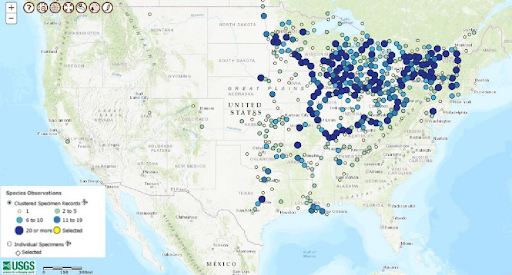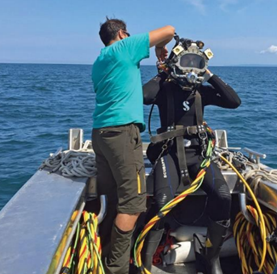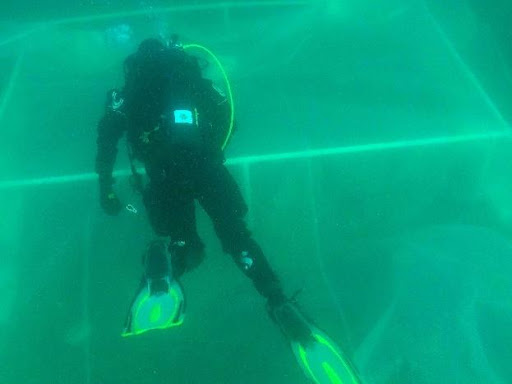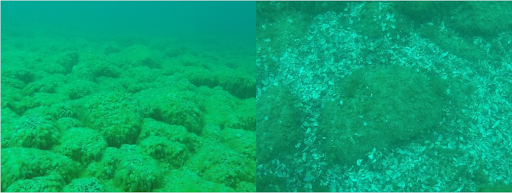UCC Support of Invasive Mussel Control Demonstration Project
Project Type
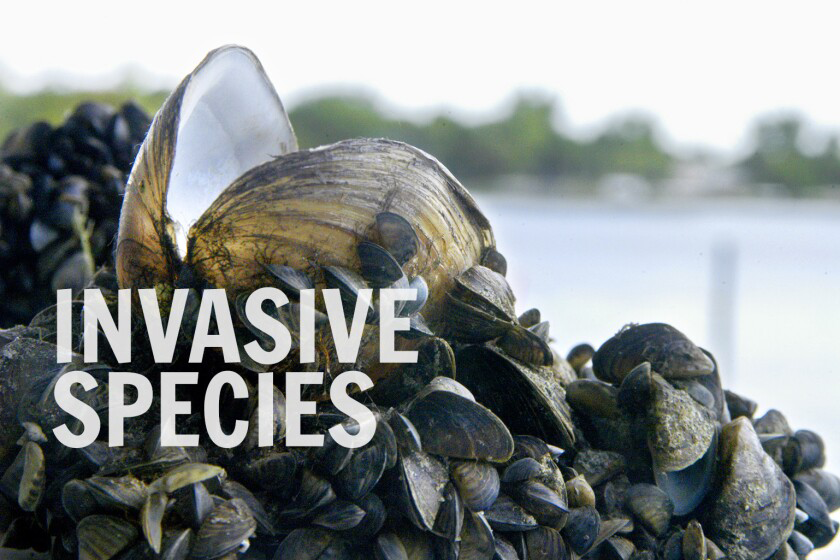
Project Description
The USGS figure below presents the point distribution map of Dreissena polymorpha throughout the continental US through February 2019.
Non-native zebra and quagga mussels invaded the Great Lakes region in the early 1990s arriving in foreign ships’ ballast water. Some estimates place their numbers as high as 750 trillion within the United States. These mussels “muscle out” native species and disrupt the food chain, by siphoning out nutrient-rich plankton that fish also need to survive.
Zebra and quagga mussels wreak havoc on marine infrastructure, such as cooling water intakes for power plants, industrial facilities, and screening structures for drinking water plants. Zebra mussels cause severe damage to various parts of hydroelectric power plants in affected areas. Water strainers and cooling systems clogged up with zebra mussels often cause shutdowns due to overheating and the prevention of water flowing through the powerhouse.
But human ingenuity is making some inroads against the invaders.
In 2019, Underwater Construction Corporation provided commercial diving services to support the Invasive Mussel Collaborative (https://invasivemusselcollaborative.net/about/), which coordinated a demonstration control project for invasive mussels at Good Harbor Reef in Lake Michigan.
“UCC was an active partner on the project for the design, procurement, construction and removal of benthic barrier structure,” said Nick Stathakis, UCC Midwest Regional Sales Manager. “UCC provided dive and support vessels, including USCG-licensed captains, for the project. UCC divers assembled and removed the barrier and structure, pumped the Zequanox® toxicant product from the support vessel, and monitored conditions. UCC also acted as a support crew for the scientific divers completing the study.”
A copy of the Invasive Mussel Collaborative report, “Dreissenid Mussel Control Demonstration Project”, can be found at https://invasivemusselcollaborative.net/research-and-projects/imc-pilot-project-draft/.
Project partners included the National Park Service, US Geological Survey; National Oceanic and Atmospheric Administration; Michigan Department of Natural Resources; Michigan Department of Environment, Great Lakes, and Energy; Great Lakes Commission; Great Lakes Fishery Commission; the University of Wisconsin-Milwaukee; University of Michigan; LimnoTech; Marrone Bio Innovations; Underwater Construction Corporation; and the Great Lakes Environmental Center.
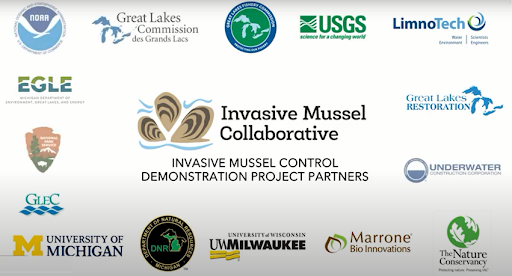
This project expanded existing National Park Service and Michigan Department of Natural Resources projects to remove invasive mussels in the Sleeping Bear Dunes National Lakeshore and Good Harbor Reef areas near Traverse City, MI.
The project also aligns and addresses objectives in the Invasive Mussel Collaborative Strategy to Advance Management of Invasive Zebra and Quagga Mussels, which offers a roadmap to improve invasive mussel control in the Great Lakes region.
The Good Harbor Reef project complements the National Park Service’s ongoing work by using a different control method, the highly selective toxicant Zequanox®.
Zequanox® toxicant application took place in early August of 2019 over a span of three treatment days. Monitoring occurred prior to the treatment as well as one day, one week, two weeks, and one-month post-application.
Preliminary results from this initial monitoring showed Dreissenid mussel mortality rates to be as high as 97 percent after treatment. A final report from these initial monitoring efforts was published by LimnoTech in November 2020 and can be accessed at https://invasivemusselcollaborative.net/wp-content/uploads/2020/12/Final_Report_Good_Harbor_Zequanox.pdf.
Additional follow-up monitoring of the test area took place during the spring of 2020 to further study long-lasting effects of Zequanox® toxicant and its ability to control Dreissenid mussel species.
For more information on this innovative research and demonstration project, please visit the Invasive Mussel Collaborative website at https://invasivemusselcollaborative.net/research-and-projects/imc-pilot-project-draft/ or contact the Great Lakes Commission, Ann Arbor, MI, at (734) 971-9135, or by email at [email protected].
As the largest inland commercial diving services company in the United States, Underwater Construction Corporation and its staff of over 200 divers, supervisors and project managers operate from multiple regional locations in Connecticut, Maryland, Michigan, Tennessee, Wisconsin, Texas, South Carolina and the United Kingdom. Through our global network of offices and associates, UCC has performed projects in over 25 countries.
Contact Nick Stathakis at 800.422.3935 ext. 307 or [email protected] for any of your Zebra/Quagga Mussel management/removal support needs – he and the UCC team will get your job done!
